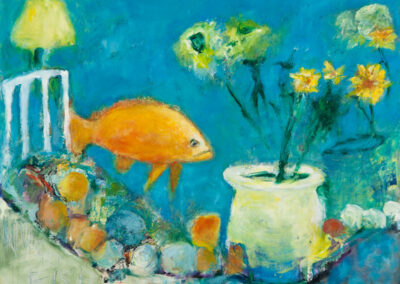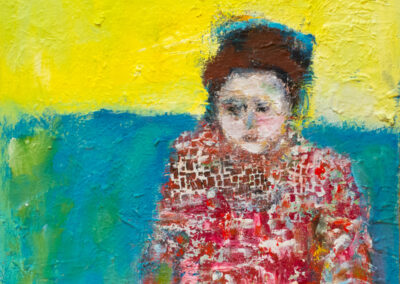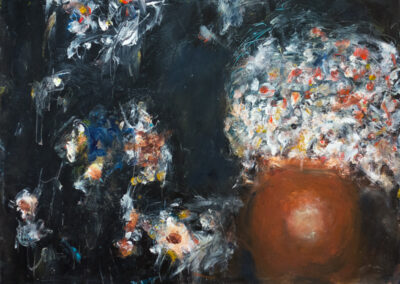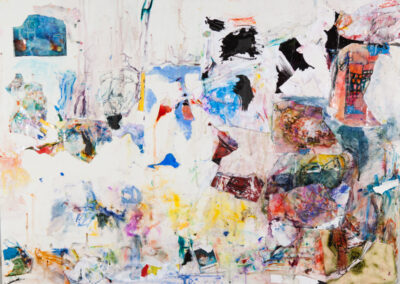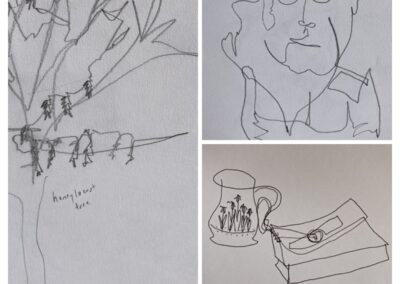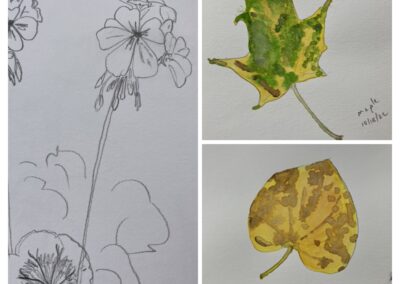Louise Weinberg
Louise Weinberg, a former clinical social worker and artist, was diagnosed with atypical Parkinson’s disease in 2002. In 2017, her physical symptoms worsened, and she began to experience features of “Parkinson’s dementia,” which included vivid hallucinations and cognitive decline. Her artwork reflected these changes, as shown in these paintings. In 2014, in the series of paintings “Games Fish Play,” Louise depicted fanciful scenes combining traditional still life and fish in dreamlike images. By 2017, she was no longer painting with a brush, and used her hands to create images of passive-appearing women in a series she called “Am I My Mother.” (Her mother had developed dementia in her 90’s). Louise later realized these figures were similar to people she saw in her hallucinations. Also, in 2017, she painted a series “From Darkness, Light,” in which a vase of flowers is depicted in increasingly abstract form, as though reality were dissolving. Finally, in 2019, no longer able to paint, Louise constructed collages from torn-up fragments of her paintings and drawings. Despite her disabilities, Louise continued to make art until she died in 2021.
Dr. Michael Stanley, a neurology fellow at Brigham and Women’s Hospital, studied the relationship between Louise’s art and her cognitive changes, and published his observations in the online journal Aeon (https://aeon.co/essays/how-a-neurological-condition-affects-an-artists-creativity)
Kathy McDonough
I find the concentration needed to observe something closely and sketch or paint it slows my mind. It allows me a short break from the worry, planning, and stress of caregiving. I’m not focused on “making art” as much as I am on mindfulness. For example, some of these “messy” sketches were made using one continuous line and by not looking down at the paper. The others, by trying to replicate the leaves and geranium as detailed as possible. Both ways give my worried mind a break. – Kathy McDonough (family caregiver)
